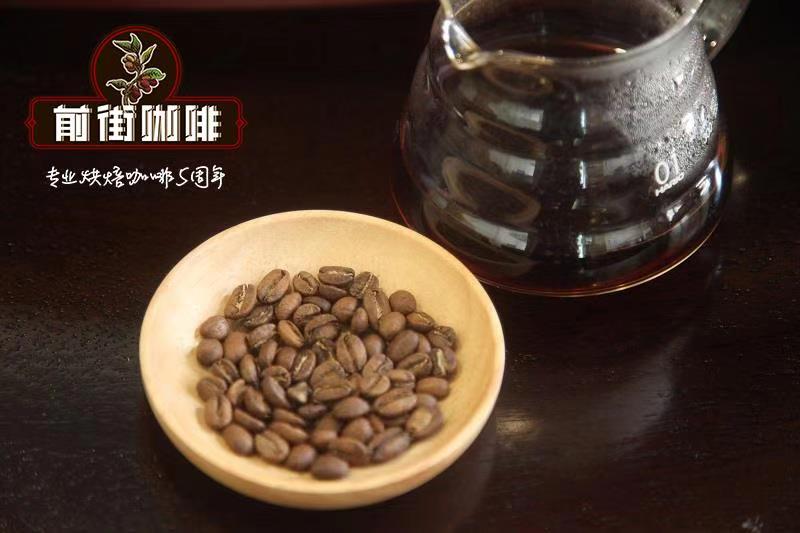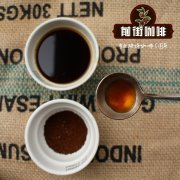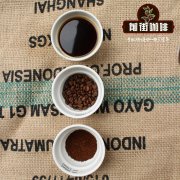Does decaf taste different? how does Starbucks decaf taste good?

Professional coffee knowledge exchange more coffee bean information please follow the coffee workshop (Wechat official account cafe_style)
Decaf coffee tastes bad.
To be fair, most decaf coffees are very... It tastes bad. But this is definitely not a low-caffeine pot, nor is it the fault of decaffeinated coffee beans in the decaffeinated process. But because most decaf coffee chooses cheap, commercial-grade beans in its raw materials. Modern decaffeinated technology is quite complex. In most cases, low-caffeinated beans are just one of the products of decaffeinated coffee companies. The caffeine that has been detached will be another (otherwise, where do you think the caffeine in energy drinks and colas comes from? ). So, when choosing raw materials, you will naturally prefer some coffee beans with high caffeine content (such as Robusta? ). Low-caffeinated coffee beans may already be bad beans before they are decontaminated.
Like other coffee beans sold in coffee shops, low-caffeinated coffee can perform very well even after decaffeination if it is a very high-quality batch from the beginning of raw beans.
Decaffeinated coffee is treated with dangerous chemicals.
As mentioned above, modern decaffeinated technology is quite complex, and indeed, the more traditional decaffeinated treatment on the market-"European treatment" is the use of chemical solvents such as ethyl acetate or dichloromethane. But don't worry, these solvents won't cause any food safety problems. Ethyl acetate is a natural form of ethanol and acetate. It is common in many fruits and wines and is often used in perfumes. Dichloromethane, on the other hand, has a low boiling point and has long evaporated during the roasting of coffee beans.
Still don't believe in decaf? Then you can try the "Swiss water treatment", which does not contain any chemical reagents, but gently extract caffeine using pure water, which is more expensive and less efficient, but can ensure organic production and maintain the best flavor of coffee beans.
Decaf / decaffeinated coffee does not contain caffeine
The decaffeinated process of decaffeinated / decaffeinated coffee can remove most of the caffeine in coffee beans, but it is not possible to remove it completely. As far as the commonly used decaffeination technology on the market is concerned, most of the caffeine can be removed very effectively, so that only 2% of the original caffeine remains in the coffee beans.
If you are really sensitive to caffeine, you may need to rule out all options that contain "coffee ingredients".
At Starbucks, normal coffee beans are usually used to grind coffee unless customers explicitly ask for low caffeine. Regular coffee and espresso are naturally caffeinated, usually 1/2 of the normal amount of caffeine. If you are not satisfied, you can ask the clerk for decaf.
Of course, they also launched the DECAF series. The biggest selling point of Starbucks' DECAF series is that 99% of them are caffeine-free, such as latte, the star product of their decaf family, which looks no different from an ordinary latte.
But according to the official version of Star Dad, the drink uses carbon dioxide extraction to remove 99% of the caffeine. But fat friends do not have to worry about its taste, it is not much different from the original latte taste, and still retains the mellow aroma of the coffee.
In addition to lattes, Starbucks' DECAF range of coffees includes cold and hot American coffee, caramel macchiato, mocha, white mocha and cappuccino.
Many Japanese coffee brands and merchants have added low-caffeine coffee under the banner of "health" to their popular coffee products. MUJI, as mentioned earlier, sells decaf instant coffee powder.
END
Important Notice :
前街咖啡 FrontStreet Coffee has moved to new addredd:
FrontStreet Coffee Address: 315,Donghua East Road,GuangZhou
Tel:020 38364473
- Prev

Is decaf good? is the caffeine content really low? who is suitable for decaf?
Professional coffee knowledge exchange more coffee bean information please follow the coffee workshop (Wechat official account cafe_style) decaf coffee, as the name implies is only a trace amount of caffeine coffee. Coffee contains many ingredients and substances, among which caffeine has an obvious effect on the human body. For many people who are addicted to coffee but whose physical condition does not allow caffeine intake.
- Next

What is decaf-- what are the characteristics of solvent-treated coffee?
Professional coffee knowledge exchange more coffee bean information please pay attention to the coffee workshop (Wechat official account cafe_style) decaf coffee decaf coffee, as the name implies is only trace caffeine coffee. Coffee contains many ingredients and substances, among which caffeine has an obvious effect on the human body. For many people who are addicted to coffee, but their physical condition does not allow caffeine
Related
- Beginners will see the "Coffee pull flower" guide!
- What is the difference between ice blog purified milk and ordinary milk coffee?
- Why is the Philippines the largest producer of crops in Liberia?
- For coffee extraction, should the fine powder be retained?
- How does extracted espresso fill pressed powder? How much strength does it take to press the powder?
- How to make jasmine cold extract coffee? Is the jasmine + latte good?
- Will this little toy really make the coffee taste better? How does Lily Drip affect coffee extraction?
- Will the action of slapping the filter cup also affect coffee extraction?
- What's the difference between powder-to-water ratio and powder-to-liquid ratio?
- What is the Ethiopian local species? What does it have to do with Heirloom native species?

